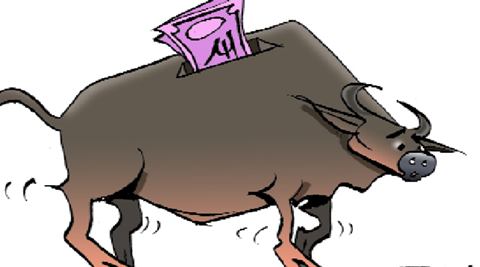Dividend Distribution Tax (DDT) levied under the Income Tax Act ,1961 is a tax levied on any amount declared, distributed or paid by way of dividends by a company which is liable to be taxed in the hands of the company at the basic rate of 15% plus applicable surcharge and cess. As a corollary, such dividend income was till last year completely exempt from tax in the hands of the shareholders.
The law around DDT has evolved over the recent years and key changes were made with an intent to rationalise the provisions and provide a level playing ground. With the introduction of the grossing up provisions in the law in 2014, the effective DDT cost on the amounts distributed as dividend has increased from 16.995% to 20.36%. Further, last year the government additionally introduced Section 115BBDA under the Act, which provides for an additional taxation of 10% in respect of dividend receipts of resident individuals, Hindu Undivided Family and firms (including Limited Liability Partnerships).
The recent changes coupled with 30% corporate tax rate (though the government has promised to bring this down in a phased manner) makes doing business in India an expensive proposition from a tax perspective. In fact, dividends distributed by foreign subsidiaries stand on a more beneficial footing in view of the 15% tax rate in the law as compared to the grossed up rate applicable for domestic companies.
Till 2008, DDT had a cascading impact on account of which the tax increased based on the number of ownership layers. The government then brought in a key relaxation by way of inserting a DDT exemption rule for layered holding structures wherein cascading impact of DDT was sought to be mitigated. Further amendments were carried out to this provision in 2012, by way of permitting any company and not just the ultimate holding company to reduce, from the dividend paid, the amount of dividend already subjected to DDT in the hands of the subsidiary company.
Despite the above relaxations, there still exist certain ambiguities and practical challenges in availment of the true benefit of these exemption provisions. Presently, Section 115-O of the Act spares domestic companies from paying DDT to the extent of dividend received from the subsidiary company on which the subsidiary company has already paid DDT. While the amendments in 2012 were made with the intent of mitigating the cascading impact of DDT in a multi-layer corporate structure; however, the law continues to provide that the same amount of DDT cannot be taken into account more than once for availing the benefit of this sub-section. The industry has been demanding that the government delete the proviso such that the dividend distribution from the same income does not suffer double taxation on account of a multi-tier corporate holding structure which sometimes may have been created due to commercial or regulatory requirements.
Another challenge is that cascading relief as provided in Section 115-O is restricted only to those companies which hold more than half of the nominal value of equity share capital of the dividend paying company; thereby leading to an unfavourable situation wherein the investment holding companies holding less than half of the nominal equity share capital of the operating company are unable to avail this relief. This is an apparent disparity in the law which may need rationalisation.
It may also be noted that Section 115-O provides a condition around the timing of further distribution of dividend in such multi-layer structures whereby the law has a restrictive condition that such exemption is available only when the dividend is distributed in the same financial year in which it was received by the holding company. Such a restriction leads to a practical challenge, where for availing the exemption it becomes mandatory for the company receiving dividend income to declare interim dividend in the financial year of receipt of such dividend income. Payment of interim dividend is subject to certain restrictions in relation to the rate of dividend and other compliances under the Companies Act, 2013 and leads to an unintended consequence whereby on account of such restrictions in the company law, a company may not be able to declare interim dividend and hence, lose the DDT exemption allowable under the law.
Some of these issues need appropriate clarification or amendments in the law such that the provisions and the DDT exemption can be implemented in their true spirit. Various industry bodies in their reports to the government have also made recommendations to resolve some of the above stated challenges.
You may also like to watch this video
The government may need to re-look at some of the above issues to make the DDT regime more industry friendly. A reduced DDT rate with a complete pass through status for dividends which have suffered DDT once, would go a long way in creating a positive sentiment in the country.
(With inputs from Kanika Goel, associate director, M&A tax, KPMG, India)
The author is partner—deal advisory, M&A tax, KPMG, India. Views are personal

